Introduction
Babcock University is a famous private Christian university in Nigeria. The school has attracted widespread attention for its high-quality education, good academic atmosphere and integration of Christian values, providing students with a comprehensive learning environment.
Overview
Student size: It has thousands of students, including undergraduates and postgraduates. The school's enrollment scale is constantly expanding, attracting students from all over Nigeria and other countries, creating a multicultural atmosphere on campus.
Subject areas: The disciplines cover a variety of fields, such as medicine, nursing, pharmacy, engineering, agriculture, business management, computer science, humanities and social sciences, etc. A wide range of professional options are provided to meet the interests and career planning needs of different students.
History and establishment time
The school was founded in 1959 and was originally established as a higher vocational college. Over time, the school continued to grow and develop, and was upgraded to a university in 1999. Its development process reflects the continuous pursuit of educational quality and the gradual expansion in the academic field.
School strength
Faculty: It has a team of highly qualified faculty. Many teachers have rich teaching experience and professional knowledge, and some teachers also have international education background or industry experience. The school pays attention to the professional development of teachers and provides them with opportunities for training and academic exchanges to ensure the continuous improvement of teaching quality.
Research achievements: Active in academic research. The school encourages teachers and students to actively participate in scientific research projects and has carried out a number of studies in the fields of medicine, agriculture, engineering, etc. For example, in medical research, certain results have been achieved in the research of common local diseases; in the field of agricultural research, in-depth discussions have been conducted on issues such as crop planting technology and agricultural sustainable development. The school also has a special research institute to provide support for scientific research activities.
International cooperation: Actively carry out international exchanges and cooperation. It has established cooperative relations with many internationally renowned universities, including student exchange programs, teacher visits, joint scientific research and other forms of cooperation. These collaborations give students the opportunity to be exposed to international cutting-edge academic concepts and educational methods, broaden their international horizons, and also enhance the school's international reputation.
Nature of the institution
This is a private university owned and managed by the Seventh-Day Adventist Church. This religious background also allows the school to incorporate Christian values and moral concepts into the educational process.
Educational philosophy
With Christian values as the core, we focus on cultivating students' moral character and spiritual qualities. We emphasize the combination of academic excellence and moral education, hoping that students can become people with social responsibility and moral standards while mastering professional knowledge. The school encourages students to think positively, explore the truth, and put what they have learned into practice.
Key laboratories and disciplines
Key disciplines: Medicine and nursing are a highlight of the school. The medical major has a high reputation in Nigeria with its advanced teaching equipment and clinical internship base, as well as its excellent faculty. The nursing major also focuses on practical teaching and has trained a large number of excellent nursing talents. In addition, the agricultural discipline is also relatively prominent, and has certain advantages in agricultural technology research and practice.
Key laboratories (if any): There are advanced laboratories in the medical field, such as anatomy laboratories, pathology laboratories, clinical diagnostic laboratories, etc., equipped with modern medical testing equipment, which provide good conditions for medical teaching and scientific research. There are also related laboratories in agricultural disciplines for experimental teaching and scientific research projects.
Faculties and colleges
The school has several colleges, including the School of Medicine, the School of Nursing, the School of Pharmacy, the School of Engineering, the School of Agriculture, the School of Business, the School of Computer Science, the School of Humanities, etc. Each college has several departments and majors. For example, the medical school has a clinical medicine department and a basic medicine department, providing students with systematic subject education.
Ranking
Babcock University ranks high in the domestic university rankings in Nigeria. It has outstanding performance in the category of private universities and is constantly improving its ranking position. In some professional rankings, such as the rankings of medicine and nursing, it has also achieved good rankings.
Expenses
Tuition fees: As a private university, tuition fees are relatively higher than those of public universities. The specific tuition fees vary depending on factors such as majors and degree levels (undergraduate or graduate). For example, the tuition fees for medical and engineering majors may be higher than those for liberal arts majors, and the annual tuition fees may range from hundreds of thousands of naira to millions of naira.
Living expenses: Students' living expenses mainly include accommodation, food, and transportation. The cost of living in the area where the school is located will also affect the total cost. Generally speaking, the school will provide a variety of accommodation options, and the fees for dormitories of different grades are different. The food and transportation costs are relatively reasonable. Students can make reasonable arrangements according to their own financial conditions.
Campus environment
Architectural style: The architectural style of the campus combines the simplicity of modern architecture with the solemnity of religious architecture. The design of teaching buildings, libraries and other buildings focuses on practicality and comfort, and also reflects the religious and cultural characteristics of the school.
Campus facilities: It has complete teaching facilities, classrooms are equipped with multimedia teaching equipment, laboratory facilities are advanced, and the library has a rich collection of books covering various disciplines, and provides a quiet and comfortable reading and learning environment. Living facilities include student dormitories (providing different accommodation options), canteens (providing a variety of food options), sports venues (such as basketball courts, football fields, gyms, etc.) and leisure facilities (such as gardens, cafes, etc.) to meet students' daily life and physical exercise needs.
Natural landscape: The campus is well greened, with large lawns, trees and gardens, creating a quiet and beautiful learning and living atmosphere, providing students with a comfortable campus environment.
-
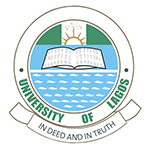
University of Lagos
-
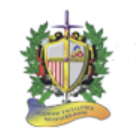
Benson Idahosa University
-
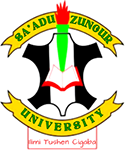
Bauchi State University
-

Federal University of Technology, Akure
-

Tai Solarin University of Education
-
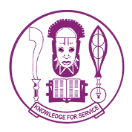
University of Benin
-

Bayero University Kano
-

Ahmadu Bello University
-
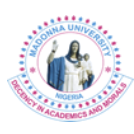
Madonna University
-
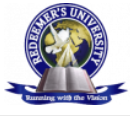
Redeemer's University
-

Mesoamerican University
-

Istmo University
-

Mariano Galvez University of Guatemala
-

Regional University of Guatemala
-

Galileo University
-

Francisco Marroquín University
-

Rafael Landívar University
-

University of the Valley of Guatemala
-

University of San Carlos of Guatemala
-

Technological Institute of Tlaxcala Plateau
-

Golfo University
-

Technological University of South Sonora
-

Technological University of Huejotzingo
-

Tizimín Institute of Technology
-

Chilpancingo Institute of Technology

